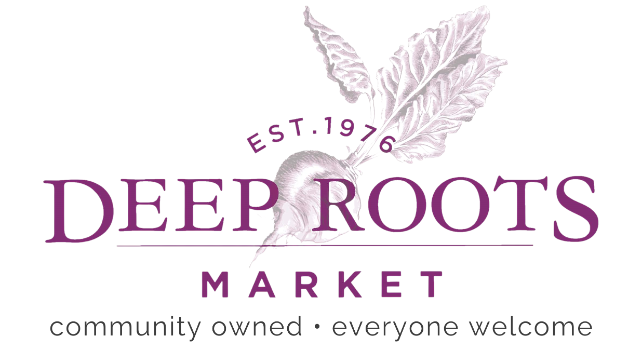Definition of a Co-op
A cooperative is an autonomous association of persons united voluntarily to meet their common economic, social, and cultural needs and aspirations through a jointly-owned and democratically-controlled enterprise.
Co-ops...
✅ Are owned and democratically controlled by their Member-Owners - the people who use the Co-op’s services or buy its goods - not by outside investors. Co-op Member-Owners elect their Board of Directors from within the Ownership.
✅ Return surplus revenues - income over expenses and investment - to Member-Owners proportionate to their use of the Cooperative, not proportionate to their “investment” or Ownership Share. In other words, you get back a percentage of what you put in during years of surplus.
✅ Are motivated not by profit, but by service - to meet their Member-Owners’ needs for affordable and high-quality goods or services. Co-ops exist solely to serve their Member-Owners.
Our Mission
In accordance with the Cooperative Values and Cooperative Principles, we operate to serve the surrounding community, moving toward a healthy, equitable, and sustainable future.
Our Ends Statement
The Deep Roots Market community will have:
• Access to healthy, locally grown, organic, and Fair-Trade foods and goods
• A sustainable community marketplace where all are welcome
• A vibrant example of the Cooperative Values and Principles
• A gathering place to build and strengthen community
• A working example of greater equity and justice
Co-op Values
- Self-help
- Self-responsibility
- Democracy
- Equality
- Equity
- Solidarity
- Honesty
- Openness
- Social Responsibility
- Caring for Others
Co-op Principles
- Voluntary & Open Ownership
-
Cooperatives are voluntary organizations, open to all persons able to use their services and willing to accept the responsibilities of ownership, without gender, social, racial, political, or religious discrimination.
- Democratic Owner Control
-
Cooperatives are democratic organizations controlled by their owners, who actively participate in setting their policies and making decisions. Those serving as elected representatives are accountable to the ownership. In primary cooperatives, owners have equal voting rights (one owner, one vote), and cooperatives at other levels are also organized in a democratic manner.
- Owner Economic Participation
-
Owners contribute equitably to, and democratically control, the capital of their cooperative. At least part of that capital is usually the common property of the cooperative. Owners usually receive limited compensation, if any, on capital subscribed as a condition of ownership. Owners allocate surpluses for any or all of the following purposes: developing their cooperative, possibly by setting up reserves, part of which at least would be indivisible; benefiting owners in proportion to their transactions with the cooperative; and supporting other activities approved by the ownership.
- Autonomy & Independence
-
Cooperatives are autonomous, self-help organizations controlled by their owners. If they enter into agreements with other organizations, including governments, or raise capital from external sources, they do so on terms that ensure democratic control by their owners and maintain their cooperative autonomy.
- Education, Training & Information
-
Cooperatives provide education and training for their owners, elected representatives, managers, and employees so they can contribute effectively to the development of their cooperatives. They inform the general public - particularly young people and opinion leaders - about the nature and benefits of cooperation.
- Cooperation Among Cooperatives
-
Cooperatives serve their owners most effectively and strengthen the cooperative movement by working together through local, national, regional, and international structures.
- Concern for Community
-
Cooperatives work for the sustainable development of their communities through policies approved by their owners.
- Diversity, Equity & Inclusion
-
In addition to the seven international cooperative principles, the food co-ops of National Co+op Grocers have chosen to incorporate an eighth principle: diversity, equity, and inclusion. Cooperatives believe we are stronger when a proactive effort is put forth to engage everyone in governance, management, and representation.


